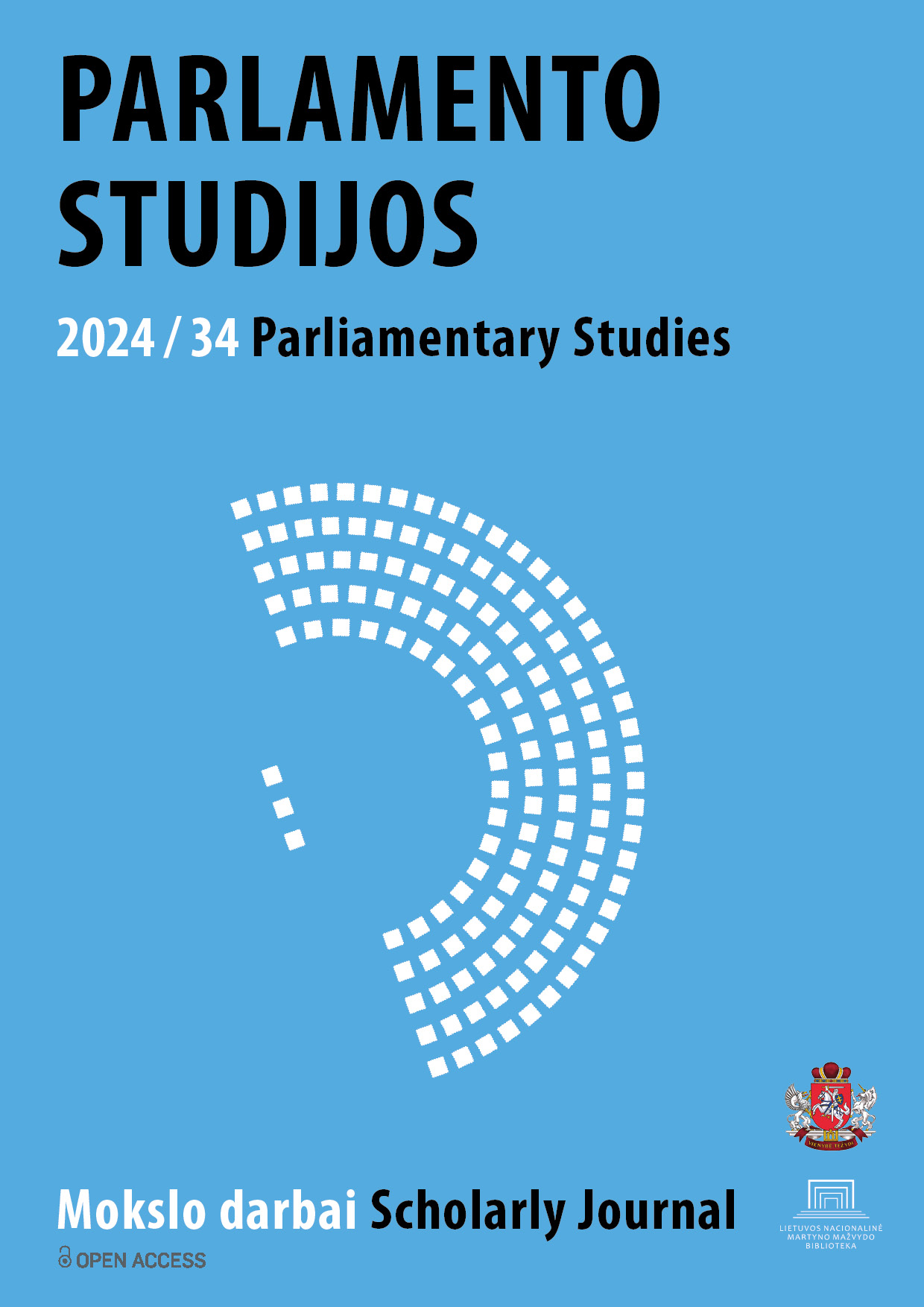Ernestas Galvanauskas’s Opinion Towards the Lithuanians of East Prussia and the Klaipėda Question in 1923, 1951, and 1960
DOI:
https://doi.org/10.51740/PS.34.4Keywords:
Lithuanians of East Prussia, the Klaipėda (Memel) question, The Paris Peace Conference, Ernestas GalvanauskasAbstract
One of the most prominent Lithuanian politicians, Ernestas Galvanauskas (1882–1967), a four-time Prime Minister and three-time Foreign Minister during the restoration of the Lithuanian state in 1919–1924, became well acquainted with the problem of the Lithuanians of East Prussia and their declarations for the reunification of the Lithuanian state at the Paris Peace Conference in 1919, while working as a member of the Lithuanian Delegation. The Versailles Peace Treaty, which separated the Klaipėda Region from Germany, limited the efforts of Lithuanian politicians and Lithuanians of East Prussia to the aspirations of the Klaipėda Region’s accession and the need for the Klaipėda port. In order not to violate the Versailles Peace articles, Galvanauskas was active in the annexation of the Klaipėda Region to Lithuania, leading the operation of annexation in January 1923, officially denying any involvement of the Lithuanian government in the events in Klaipėda, which were presented as an uprising of the local population against the German Directory. Galvanauskas headed the Lithuanian delegation in the negotiations on the Klaipėda Convention, under which Klaipėda, with its extensive autonomy, became part of Lithuania. In response to a hypothetical question posed in 1951 as to what Lithuania’s interest would be if the question of the fate of the former Lithuanian inhabited areas of East Prussia came to light, Galvanauskas remained of the opinion that the question of East Prussia was a matter for the Great Powers, and that Lithuania’s interest lay in Klaipėda: “Klaipėda is a vital matter for Lithuania, and there can be no compromises here.” At the request of father Mykolas Krupavičius, in 1960 he wrote his own version of the events in Klaipėda, this time not denying the role of the Lithuanian government in the events of 1923. An excerpt of Galvanauskas’s recollections is being published for the first time in the appendix of this article.









 The metadata of the scholarly journals and publications of the Lithuanian National Martynas Mažvydas Library is distributed by
The metadata of the scholarly journals and publications of the Lithuanian National Martynas Mažvydas Library is distributed by 